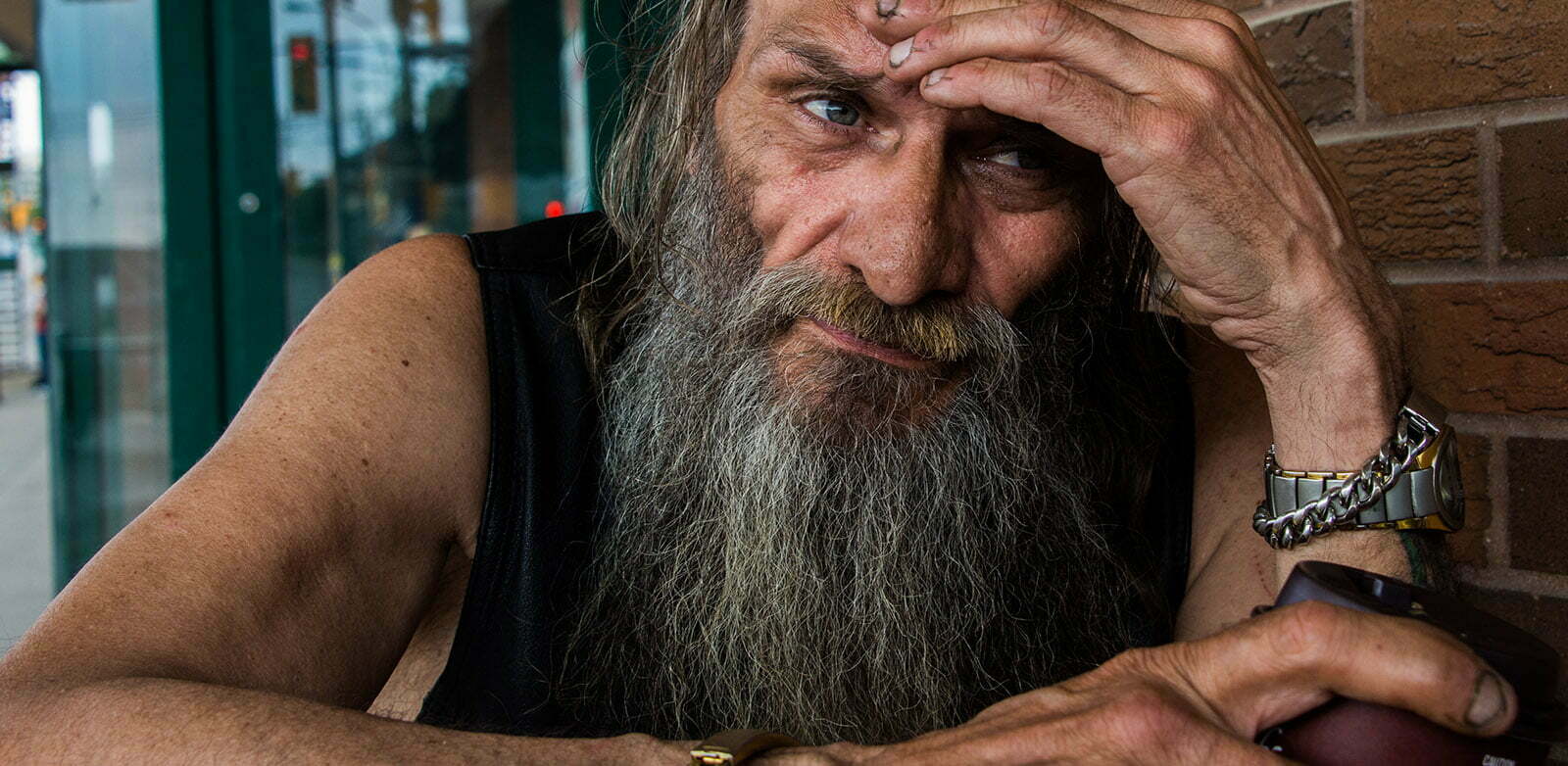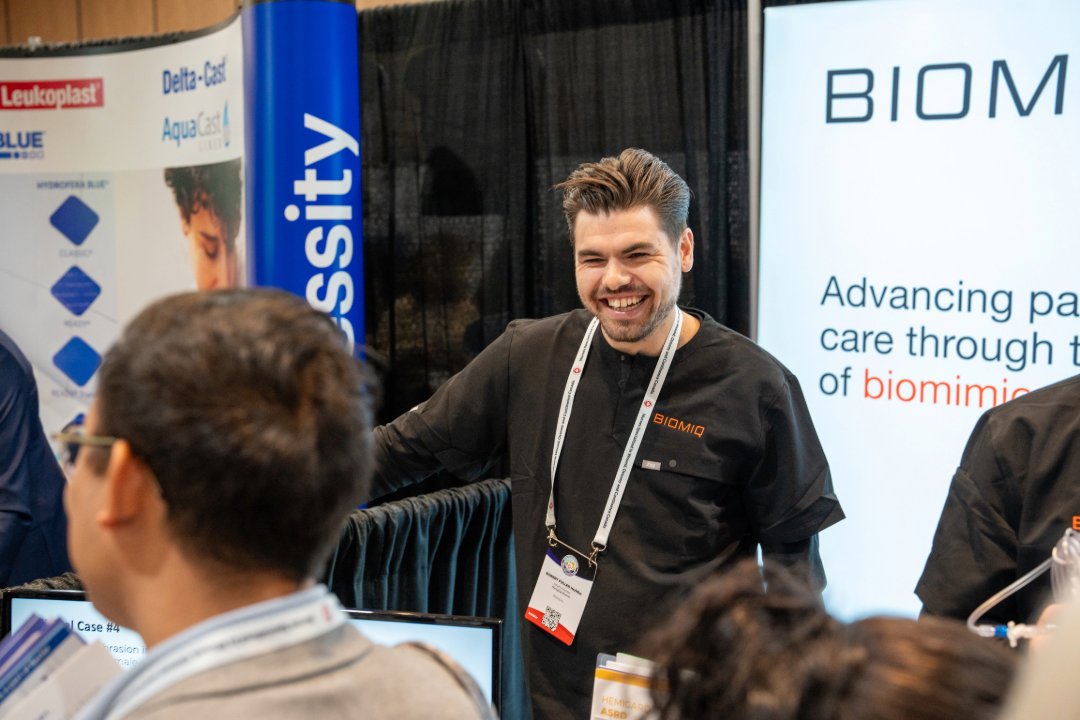By: Jessica Bondy
“Jessica, shelter is traditionally a mat and a meal.”
That was my introduction to housing services, courtesy of House of Friendship (our friends call us “HoF”) executive director and community leader John Neufeld.
In 2018, after nearly a decade in student services and housing at the University of Waterloo, I joined House of Friendship, a Waterloo-Region non-profit organization serving those in need of food, housing, addiction treatment and vital community resources.
During my onboarding to the shelter program, John shared that the homeless men we serve “get a hot meal and a place to sleep – one night at a time.” That was our mandate. “The men line up at 5:00pm for dinner, and they’re packed up and back out the door by 9:00am”.
It doesn’t take a federal investigation to see that if we want to help these guys tackle housing, addiction, and mental health issues – not to mention their deep-seated trauma which is often the root cause of these challenges – this traditional model just won’t do.
When I joined HoF, John and I talked about being bold and ambitious for our community. HoF had laid tremendous groundwork in the community in terms of strong partnerships and awareness about the mission. It was clear to me that this was an organization looking to take their mission to the next level. I wanted in.
As a leadership team, and with the support of some really inspirational community partners and board members, we developed the concept of ShelterCare. Here’s how to think of it: at a systems level, HoF and our partners provided valuable social services each under a different roof. The men we serve would walk to a shelter to have a place to stay at night; the hospital or a community clinic when sick or seeking addiction treatment; a soup kitchen when they need to eat; paramedics when they are hurt or overdosing; police when anti-social behaviour causes problems; and all to often jail when the distress, pain and trauma overwhelms the individual.
ShelterCare would integrate systems and support under one roof creating healing, housing and hope. Inspired by our region’s housing-first approach to tackling homelessness, we would provide health and housing resources in the same location to drive better outcomes for the men we serve. So we had it all planned out. We just had no idea how to make it happen.
COVID took care of that.
The pandemic really hit its stride in March, 2020. Soon we’d all be under a provincial shelter-in-place order. That’s when crisis met opportunity.
Enter: ShelterCare.
With hotels cleared of travellers, an opportunity arose to repurpose a hotel to pilot the ShelterCare model. The Region of Waterloo, under the leadership of Chair Karen Redman, stepped up to direct federal emergency funding dollars to the project, which has more up-front costs than traditional shelter for obvious reasons. Together, with a whole lot of help from community agencies and partners like the Inner City Health Alliance, the Waterloo Regional Police Service, Canadian Mental Health Association, Lutherwood and so many others, we put these men in dignified spaces, on a 24/7 basis, with meaningful physical separation. And then we introduced “wrap-around” healthcare, addiction treatment, mental health support on top of our stellar housing supports.
Participant feedback was immediately positive.
Here’s what one of our guys said:
“I feel like for the first time in a long time I am ready to tackle my addiction. At last, I’ve been able to see a healthcare provider for the first time in over five years. I’m sleeping – really sleeping – and I’m starting to feel like me. Thanks to the ShelterCare team, I’ve realized that I can have a life worth living and that I can do this.”
As a homelessness and housing worker, that’s the kind of success story you live for.
But we also know that solutions have to be scalable and fiscally sustainable if they’re going to attract support and investment from policymakers. We needed data.
So during the first six months of piloting ShelterCare, we tracked changes in how often external interventions were needed from third-party service providers.
Here’s what we’ve found:
- Reduction in EMS calls by 75%
- Reduction in police calls by 65%
- Reduction in overdoses by over 50%
- Reduction in violent incidents by 40%
And last but not least:
- 56 men moved into permanent housing, with none returning to shelter. This rate of permanent housing success is unheard of in our sector.
We were blown away by this data. And encouraged. But we needed to find out if the economics worked, too.
So we’ve done some of that homework. Like any data from a pilot, it’s a little back-of-the-napkin, but our honest estimate is that we believe we can save the system a bundle.
ShelterCare in its current iteration costs about $178 per night. To give you a sense of the cost reduction associated with the decreased third-party interventions I mentioned above: one night at a hospital costs $917.
We talked with our friends at the Ottawa Inner City Health Alliance, which has championed a model somewhat similar to ShelterCare for over the past twenty years. Their data suggest that for every dollar spent on ShelterCare, we can save the system two dollars by avoiding paramedic, police, and emergency department interventions.
Our early data suggest that, with ShelterCare, Waterloo Region may have found one of those radical innovations that makes us better, healthier, fairer, and more prosperous as a community.
Policymakers are noticing, and ensuring their colleagues notice too:
- Waterloo Region’s own Catherine Fife, MPP, brought the ShelterCare concept to Queen’s Park with a beautiful Member’s Statement about the hope it represents for the future of housing.
- MPP Mike Harris has helped us share our story with the provincial government, and Ontario’s associate minister of mental health and addictions, Hon. Michael Tibollo, and his team have been positively engaged.
- Hon. Bardish Chagger and her local MP colleagues have brought ShelterCare to the attention of Hon. Ahmed Hussen, who carries the housing file at the federal level.
- Regional and City councillors and mayors have been absolutely indispensable to ShelterCare’s early success.
Policymakers across all political aisles are seeing this as an opportunity to change housing and homelessness in Canada forever.
But, I want to be clear: we’re only half-way to the win.
Like the people we serve, the ShelterCare program is homeless. In February 2021, a devastating fire displaced us outside of our region, requiring us to move our program down the road in Guelph. Our search for our forever home is underway, and we need to find it soon so we can keep delivering these results.
We need a property, be it a building or a lot where we can build a facility, and we need both public and private sector dollars and in-kind support to help us do it.
But House of Friendship won’t stop there – we’re built to dream. So why not set our eyes on becoming an innovation hub for homelessness and housing? We need to bring more people under our roof and team up with untapped allies to solve this complex problem. By working alongside researchers, for example, we can create and draw insights from more data, perhaps even becoming the nation’s undisputed centre of excellence on housing.
And we need our community to continue standing with us until we achieve these dreams – a home and a hub.
What makes this community great is its collaborative spirit.
When he was serving as governor general, former University of Waterloo president David Johnston used to say about Waterloo Region and Canada that we’re smart and caring.
Smart and caring is what we do in Waterloo Region. It’s who we are. And it’s changing lives.
Jessica Bondy, MA, is director of housing services at House of Friendship and an above average home chef. jessicab@houseoffriendship.org | @jrbondy




